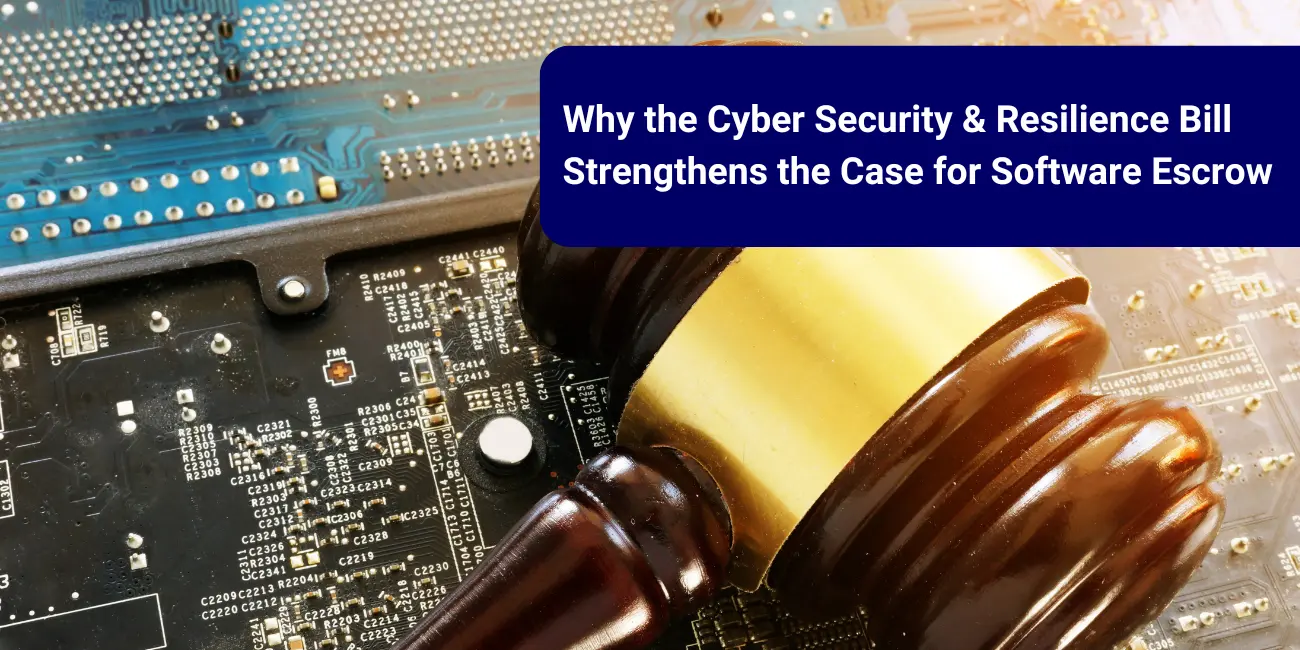Why the Cyber Security & Resilience Bill Strengthens the Case for Software Escrow
The UK’s forthcoming Cyber Security and Resilience Bill, which the government intends to bring to Parliament before the end of the year, will broaden the regulatory spotlight beyond critical national infrastructure to include managed service providers, data centres, and other technology suppliers.
And not before time, British cyber incidents classed as “highly significant” have risen by 50% over a year ago, the head of the country’s National Cyber Security Centre (NCSC) confirmed recently.
Its focus on supply-chain assurance is already prompting boards and legal teams to reassess how they evidence resilience.
In this article, The Escrow Company’s Nathan Hopkins takes a closer look at some of the likely implications of the Bill and how Software Escrow fits into the overall picture of increasing scrutiny on operational resilience.
The the Cyber Security & Resilience Bill will bring Supply-chain scrutiny that highlights the value of software escrow
The Bill’s core ambition is to strengthen operational resilience across digital supply chains.
That means regulated entities, and by extension their vendors, will likely be required to prove they can withstand disruption and recover quickly.
For any organisation that depends on licensed or third-party software, software escrow provides a tangible way to demonstrate that fallback capability.
Having critical code or technical documentation held independently ensures business continuity if a software supplier fails – which can be a devastating consequence of a cyber-attack, helping organisations meet the Bill’s test of “appropriate and proportionate” resilience measures.
Contractual clarity will be under the microscope
With regulators focusing on vendor obligations and incident preparedness, the detail of technology contracts will matter more than ever.
Questions such as “Who owns the code?”, “Who maintains it?” and “What happens if support stops tomorrow?” will move from theoretical to mandatory considerations.
Embedding software or SaaS escrow within vendor contracts provides a clear answer to those questions – defining responsibilities, release conditions, and continuity rights before an incident occurs.
Resilience as competitive differentiation
Even if SaaS escrow is not mandated, resilience will soon become even more of a competitive metric.
Vendors that can evidence robust continuity planning – including software or SaaS escrow arrangements – will stand out to clients operating in regulated environments.
In a landscape where trust and uptime underpin reputation, software escrow becomes not only a safeguard but a visible marker of reliability and preparedness.
The wider regulatory trajectory
The direction of travel is unmistakable.
In July, the European Banking Authority (EBA) published revised guidelines on the sound management of non-ICT third-party services.
The update deliberately removed ICT-related provisions now covered under DORA (the Digital Operational Resilience Act), to ensure the two frameworks align.
The goal is to create greater consistency across overlapping frameworks, including CRD and MiFID II, while reflecting best-practice principles from the FSB and Basel Committee on Banking Supervision.
The UK’s Cyber Security and Resilience Bill will surely reflect this same global movement: towards consistent, harmonised resilience expectations that extend through every layer of the digital supply chain.
A closing thought
Resilience isn’t just a technical matter – it’s contractual, operational, and reputational.
As the Bill moves closer to enactment, boards and legal advisers would do well to treat software and SaaS escrow not as a tick-box exercise, but as a strategic safeguard aligned with the UK’s new resilience standards.








